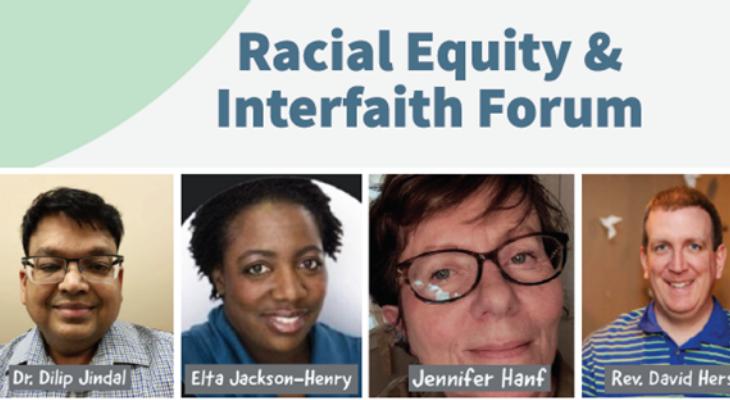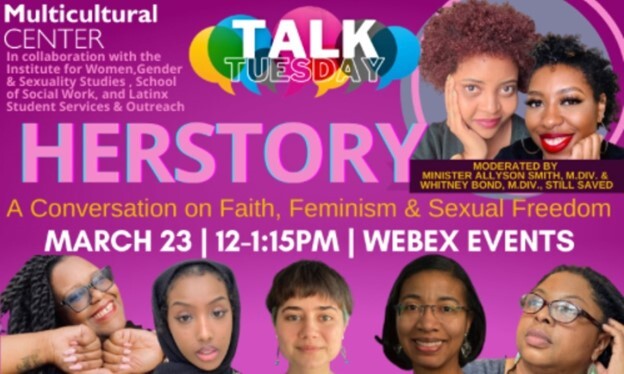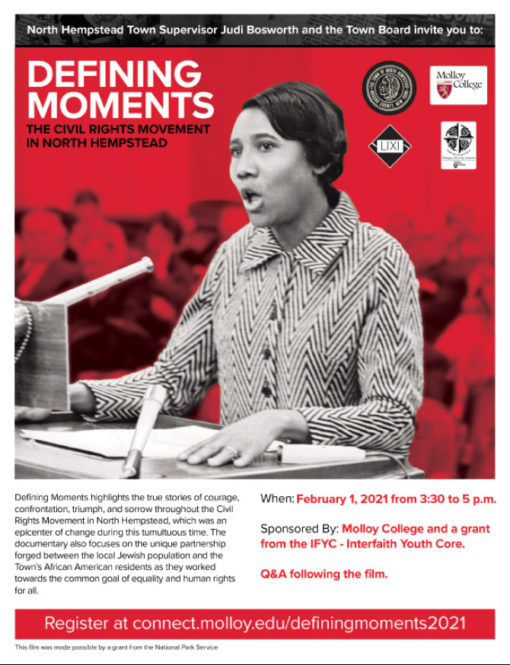What We Learned in the First Year of Racial Equity Awards, and Why We’re Offering Them Again
October 16, 2021

For the second consecutive year, IFYC will be offering grants to educators doing important work that engages religious diversity to combat systemic racism. Last fall, IFYC granted Racial Equity and Interfaith Cooperation Awards to 79 colleges and universities across the country. These $1,000 awards were among several new programs established to support work in this critical area, and grants were used to address specific needs on campus, support individual work, adapt existing curriculum and more. We are thrilled to be offering these awards again this year, while adapting to the insights shared from last year’s awardees.
The applications for curricular awards (for adapting courses) and co-curricular awards (for leading trainings, programs or events) open Friday (October 1) and close November 21. Awardees have access to a network of peers sharing ideas and insights from across the country. Whether you want to apply this year or simply want to be inspired, you can check out the resources and stories below.
Examples of How Awardees Used This Award:
Hear directly from awardees in Reimagining Interfaith in 2020: A Call to Action for Higher Education: A Webinar.
Resources for Campuses Applying:
Stories of Impact from Past Awardees:
University of the Incarnate Word is a Catholic, Hispanic Service Institution in San Antonio, Texas. In partnership with University of the Incarnate Word and San Antonio’s DreamWeek, Yesenia Caloca, assistant director of the UIW Ettling Center for Civic Leadership and Sustainability, hosted a panel where people “listened to and shared ideas about various traditions and dialogues and received an invitation to unite in compassionate service.” The panel featured Imam Omar Adib Shakir, resident Imam at Masjid Bilal Ibn; Bishop Trevor Alexander, Protestant chaplain and adjunct faculty; Mourad Takawi, assistant professor of Religious Studies; and Sr. Martha Ann Kirk, CCVI, professor emerita of Religious Studies. The panel discussed ways in which faith leaders can implement projects for the common good, highlighting projects surrounding access to clean water, treating others with dignity, and combatting racism, efforts summed up with a quote from Imam Shakir, “Human beings can be harmonious … God’s plan for the human family is to celebrate diversity.”
Dr. Julie Loveland Swanstrom at Augustana University, a small, private, Lutheran university in Sioux Falls, South Dakota, implemented two courses- Contemporary Theology (Fall 2020) and God, Suffering, and Evil (Summer 2021). According to Dr. Loveland Swanstrom, “Students responded really well to the addition of Black Liberation Theology, Womanist Liberation Theology, and American Indian Liberation theology into the Liberation Theology class… it just went beautifully! The IFYC grant helped push me to directly address race and racism throughout the course, which made it a *much* better course overall.” Dr. Loveland Swanstrom also ran an independent study in the Spring 2021 semester that incorporated the We Are Each Other’s curricula which worked well with the students who were eager to learn more about interfaith cooperation and racial equity.
North Park University is an Evangelical and Hispanic Serving Institution in Chicago, Illinois. Sharee Myricks at North Park University’s Office of Diversity and Intercultural Life implemented several initiatives with their award, including a campus-wide virtual lecture with New York Times bestselling author Jemar Tisby in which students gathered to hear why diverse theology teaching demands racial equity and justice. Participating students received books from the author. Additionally, they hosted an Interfaith Cultural Month which educated students about different religious practices worldwide.
Sharon Pitterson-Ogaldez at Pennsylvania State University- Berks, a small public institution in Reading, Pennsylvania, hosted a virtual dialogue called “Fostering Horizontal Unity to Address Intersectional Injustice” in which participants learned more about how interfaith cooperation is a major driver of racial equity. “During this dialogue, the students led the discussion to address the racial injustice experienced by Black, Indigenous, and People of Color people in the U.S. and ways in which they can make a difference on our campus. It was very engaging with students from different racial groups sharing their experiences with discrimination, exclusion and microaggressions and how they felt about it. Many students expressed their desire to have more conversations like this and find actionable ways to combat racial inequality. A post-event survey was conducted and 92.85% of the responders strongly agree/agree that they benefitted” from the event.
At Elon University, a large nonsectarian institution in Elon, North Carolina, Allison Pelyhes, Multifaith Coordinator, and Kiah Glenn, Assistant Director of the Center for Race, Ethnicity, & Diversity Education, hosted a presentation called “Anti-Racism and Interfaith Cooperation.” The invitation read: “The interfaith movement has a responsibility to include anti-racist, intersectional ideas and actions into its framework. In this session, we will discuss how frameworks such as critical race theory, intersectionality, and anti-racism build on one another and must be used within interfaith work. Then, we will use this framework to interrogate our history, individual beliefs and the religious spaces we have been or will be exposed to in order to become anti-racist interfaith leaders.” According to feedback provided at the end of the session, a participant noted “I think it’s important to show how religious beliefs have been intertwined with racism, oppression, etc. sometimes that interfaith is left out. We need to incorporate it more to promote change. It’s important to show our history and acknowledge it more to encourage people to look inward and analyze their beliefs or what others are representing.”
Georgia State University is a large public research institution in Atlanta. LaTia Sinclair, Assistant Director of the Multicultural Center hosted a program entitled “Talk Tuesday: Faith, Feminism & Sexual Freedom.” As LaTia explained, “This panel discussion included two ministers who served as moderators, and four panelists. The event was a signature event for Womxn’s Herstory Month.” The Multicultural Center purchased several books to increase the resources available to students. According to Sinclair, the sharing of stories allowed participants to learn from the lived experiences of others.
Share
Related Articles
American Civic Life
American Civic Life
American Civic Life
Faith Based Efforts Work in Vaccine Uptake: Now Let’s Make it Easy

Dr. Mona Ibrahim at Concordia College, a medium-sized, private, Evangelical Lutheran university in Moorhead, Minnesota, used the We Are Each Other’s curriculum in their Psychology and Culture course last fall. According to Dr. Ibrahim, “In order to assess the [We Are Each Other’s]: Getting Started track’s impact on students, I had students complete the Scale of Ethnocultural Empathy (SEE) both at the beginning and at the end of the semester. The SEE was developed by Wang, Davidson, Yakushko, Savoy, Tan, and Bleier (2003) as a self-report instrument that measures empathy toward people of racial and ethnic backgrounds different from one’s own. Seventeen students from the section that completed the [We Are Each Other’s] track, as well as 17 students from another section of my educational psychology course completed both the pre and post SEE … The statistically significant differences in student responses … and the non-trivial effect sizes of these differences, indicate that students in the [We Are Each Other’s] section may have developed more ethnocultural empathy than students in the [Section that did not utilize the curriculum]. Most promising are the differences … which indicate a higher willingness on the part of students who completed the [We Are Each Other’s] track to engage not only in reflection, but also in action relevant to our current national context.”
Molloy College is a Catholic institution affiliated with the Dominican religious order in Rockville Centre, New York. Dr. Sherry Radowitz held a virtual event called “Defining Moments: Documentary and Dialogue” through the Molloy College Siena Center for Social Justice. Dr. Radowitz shared: “This program included the screening of the documentary Defining Moments from filmmaker Alan Ginsberg which explored the history of racism in our Long Island region and the interracial, interfaith movement for racial justice that emerged through the 1960s … Following the movie screening, we had a panel discussion which was moderated by Mr. Ginsberg and included a panel of civil rights and faith leaders from this region. The panel included Dr. Hazel Dukes, president of the NAACP New York State Conference and member of the NAACP National Board of Directors; Bernice Sims, author of Detour Before Midnight, a personal account of her time with the Mississippi Burning civil rights workers; Marge Rogatz, former special assistant to James Farmer, national director of the Congress of Racial Equality and secretary of ERASE Racism; and, Rev. Dr. Sedgwick Easley, visionary pastor and leader of the Union Baptist Church of Hempstead, New York and board member of the Black leadership Commission on AIDS.”




